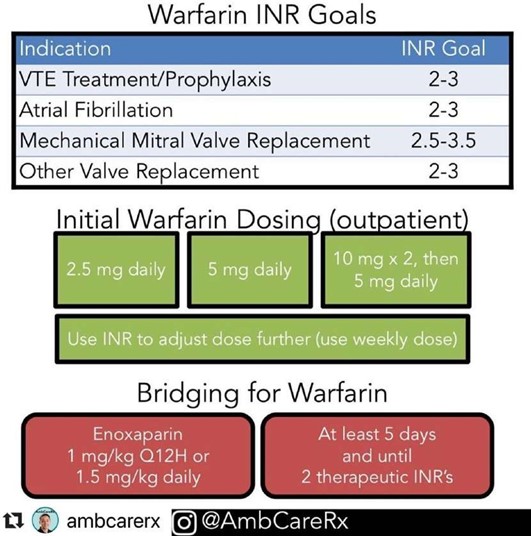Heparin Infusion Review.
A nurse is reviewing the laboratory results of a client who is receiving heparin by continuous IV infusion.
Which of the following results indicates the nurse should decrease the infusion rate?
Erythrocyte sedimentation rate 18 mm/hr.
aPTT 90 seconds.
INR.2.
Platelets 350,000/mm.
The Correct Answer is B
Heparin is an anticoagulant medication that is used to decrease the clotting ability of the blood and help prevent harmful clots from forming in blood vessels.
The activated partial thromboplastin time (aPTT) is a laboratory test commonly used to monitor unfractionated heparin therapy.
An aPTT value of 90 seconds is above the therapeutic range and indicates that the heparin infusion rate should be decreased.
Choice A is wrong because Erythrocyte sedimentation rate 18 mm/hr, is not the correct answer because it is not used to monitor heparin therapy.
Choice C is wrong because INR.2, is not the correct answer because it falls within the normal range for INR values and is not used to monitor heparin therapy.
Choice D is wrong because Platelets 350,000/mm, is not the correct answer because it falls within the normal range for platelet counts and is not used to monitor heparin therapy.
Nursing Test Bank
Naxlex Comprehensive Predictor Exams
Related Questions
Correct Answer is D
Explanation

A client who has deep-vein thrombosis and is taking warfarin should obtain an International Normalized Ratio (INR) test monthly.
This blood test measures how fast the blood clots and helps the healthcare provider determine if the client is taking the right dose of warfarin to keep them safe from bleeding and making clots.
Choice A is wrong because Platelet count, is not the correct answer because it measures the number of platelets in the blood and is not specifically related to warfarin therapy.
Choice B is wrong because aPTT, is not the correct answer because it measures the time it takes for blood to clot and is used to monitor heparin therapy, not warfarin therapy.
Choice C is wrong because Fibrinogen, is not the correct answer because it measures the amount of fibrinogen in the blood and is not specifically related to warfarin therapy.
Correct Answer is A
Explanation
The nurse should administer the medication over 2 hr because amphotericin B lipid complex should be infused slowly intravenously.
Choice B is wrong because priming the tubing with 0.9% sodium chloride is not mentioned as a necessary action when administering amphotericin B lipid complex via intermittent IV bolus.
Choice C is wrong because discarding the medication if it is yellow is not mentioned as a necessary action when administering amphotericin B lipid complex via intermittent IV bolus.
Choice D is wrong because a gravity flow set is not mentioned as a necessary action when administering amphotericin B lipid complex via intermittent IV bolus.
Whether you are a student looking to ace your exams or a practicing nurse seeking to enhance your expertise , our nursing education contents will empower you with the confidence and competence to make a difference in the lives of patients and become a respected leader in the healthcare field.
Visit Naxlex, invest in your future and unlock endless possibilities with our unparalleled nursing education contents today
Report Wrong Answer on the Current Question
Do you disagree with the answer? If yes, what is your expected answer? Explain.
Kindly be descriptive with the issue you are facing.
